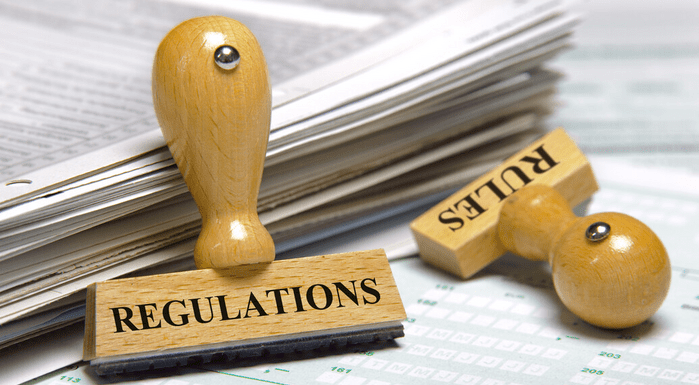All types of criminal activity related to corruption would be brought within the scope of a single new law, under wide-ranging plans from the European Commission.
Announced on 3 May, the proposal forms just one part of a renewed EU effort to fight the spectre of corruption. Research published last year found that almost 70% of Europeans believe corruption is widespread in their own member state, and only 30% believe their governments fight corruption effectively.
In a Joint Communication on the plans, the EU’s main legislative bodies warn that corruption poses risks to a wide range of business sectors, including healthcare, labour, transportation, construction, food, waste management, aerospace, defence, agriculture and social protection. Meanwhile, a recent report from Europol cited corruption as the gateway for organised crime’s infiltration of EU ports.
Corrupt private-to-private transactions, the Joint Communication stresses, “affect the entire supply chain, distort markets, undermine competition and increase costs to companies”.
Severity of sanctions
The EU’s initiative will operate across three levels:
1) A network against corruption
Running the gamut of EU institutions, the new body will pool stakeholders from law enforcement, public authorities and civil society to develop best practices and practical guidance for prevention. One of the network’s key tasks will be to support Commission efforts to map out areas across the EU where corruption risks are high. Its work will also feed into a broader anti-corruption strategy, to be devised in consultation with the European Parliament and Council, to maximise overall impact and coherence.
2) Stronger rules to combat corruption
A proposed new directive would modernise the EU’s existing anti-corruption framework in the following ways:
- Creating a single legal act for all corruption offences and sanctions. Criminality prosecuted as corruption would cover not just bribery, but misappropriation, trading in influence, abuse of functions, obstruction of justice and illicit enrichment. As well as enshrining in EU law all offences named in the UN Convention Against Corruption, the act would encompass both private- and public-sector corruption, harmonise aggravating and mitigating circumstances and boost the severity of sanctions.
- Preventing corruption and building a culture of integrity. In addition to awareness-raising campaigns and education programmes designed to reduce corruption risks, the directive would hold the public sector accountable to the highest standardsby obliging member states to adopt effective rules in four areas: open access to data of public interest; disclosure and management of conflicts of interest; disclosure and verification of public officials’ assets; and interaction between the private and public sectors. The directive would also spur the creation of specialist, new anti-corruption bodies and require the provision of adequate training and resources for authorities responsible for prevention and enforcement.
- Ensuring effective investigations and prosecution. Member states would have to guarantee that enforcement bodies and prosecutors are equipped with appropriate investigative tools. They would also have to ensure that privileges and immunity can be lifted during corruption investigations through an effective, transparent process pre-established by law and in a timely manner. Minimum rules on the statute of limitation would provide sufficient time to bring corruption offences to justice.
3) Expanding the Common Foreign and Security Policy (CFSP) sanctions toolbox to cover serious corruption
Existing sanctions enable the EU to achieve key CSFP objectives – such as preserving peace, strengthening global security and supporting democracy, international law and human rights. Under the new directive, the EU would be able to target serious acts of corruption worldwide, no matter where they occur.
A cancer on democracy
In a press conference, Commission Vice President for Values and Transparency Věra Jourová said: “I would compare corruption with cancer, which needs a lot of prevention, but also – when prevention fails – the proper treatment. We have to adopt this package and do many, many things at member states level because from what we hear and what we see, corruption is killing our democracy. It’s killing the trust of people in democratic institutions.”
“Cohesion, trust and rule of law – all these improve when we address corruption,” said EU Commissioner for Home Affairs Ylva Johansson, who will oversee the new network which is set to have its first meeting in September. “At least 60% of the organised criminal groups active in the EU use corruption as a regular tactic. And corruption is also increasingly cross-border: the organised criminal groups are almost never only active in one member state.”
ICAEW Senior Lead, Ethics, David Gomez says: “We welcome the EU’s renewed emphasis on tackling corruption. The insidious nature of corruption and illicit finance undermine democracy and open society.”
Gomez highlights a number of recent initiatives in the UK, including the introduction of the new Public Sector Financial Authority, recent legislative changes aimed at boosting transparency in relation to the beneficial ownership of assets by overseas entities, and the publication of the government’s Economic Crime Plan 2023-26 and Fraud Strategy.
“All those measures highlight the importance of combating corruption and kleptocracy in every jurisdiction. However, their impact – and that of the Commission’s initiative – will very much depend upon the resources allocated by the UK and EU,” he said.
Gomez said accountants were well placed to play an important role in tackling corruption: “As set out in the International Ethics Standards Board for Accountants’ Code of Ethics, the hallmark of the accountancy profession is the duty to act in the public interest. By virtue of their skills, roles and responsibilities, professional accountants in Europe and the UK are well placed to actively participate in rooting out corruption and the fight against economic crime more generally.”
Economic crime hub
In these articles and videos, we explore the latest trends and perspectives on economic crime from around the world, and look at how chartered accountants can help prevent it happening.




